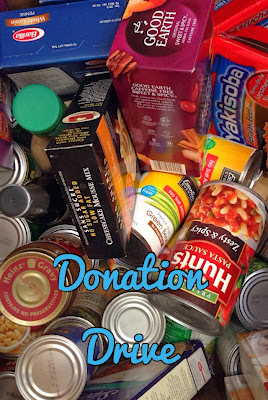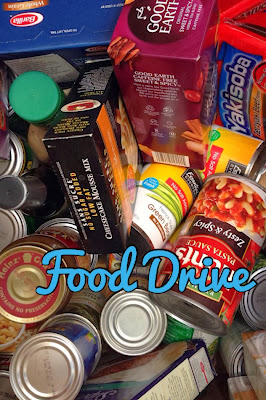We have set some boxes out at our dealership for The Society of St. Vincent de Paul Food Drive. Come in and drop of what you can! We would love to see you and hope that you have a happy holiday season! For more info on the food drive visit: http://www.stvincentdepaul.net
Wednesday, November 27, 2013
Food Drive
It is that time of year again! Food drives and the holiday season go hand in hand. They are like peanut butter and jelly. It is a magical time of year and many of these organizations depend on your donations during the holiday season to help get them through the rest of the year.
We have set some boxes out at our dealership for The Society of St. Vincent de Paul Food Drive. Come in and drop of what you can! We would love to see you and hope that you have a happy holiday season! For more info on the food drive visit: http://www.stvincentdepaul.net
We have set some boxes out at our dealership for The Society of St. Vincent de Paul Food Drive. Come in and drop of what you can! We would love to see you and hope that you have a happy holiday season! For more info on the food drive visit: http://www.stvincentdepaul.net
Tuesday, November 19, 2013
Low Tire Pressure Warning Light
"If tire pressure is too high, then less of the tire touches the ground. As a consequence, your car will bounce around on the road. And when your tires are bouncing instead of firmly planted on the road, traction suffers and so do your stopping distances. You'll also feel a decrease in ride comfort. (Hint: If you notice that every tie you own has coffee on it, check your tire pressure. It may be too high.)If tire pressure is too low, then too much of the tire's surface area touches the ground, which increases friction between the road and the tire. As a result, not only will your tires wear prematurely, but they also could overheat. Overheating can lead to tread separation — and a nasty accident. One sign of low tire pressure is if your tires squeal when cornering.And you need to check your tire pressure even if your tires aren't leaking. Why? Because tire pressure also changes with the temperature outside. Tire pressure decreases by about 1 pound per square inch for every 10-degree drop in outside air temperature. So if you last had your tire pressure checked in July, when it was 80 degrees outside, and it's now January — and the temperature is minus 20 — your tires may be underinflated by 10 pounds, which is dangerous." - CarTalk.comWatch as Liz walks you through the importance of this light:
Subscribe to:
Comments (Atom)






